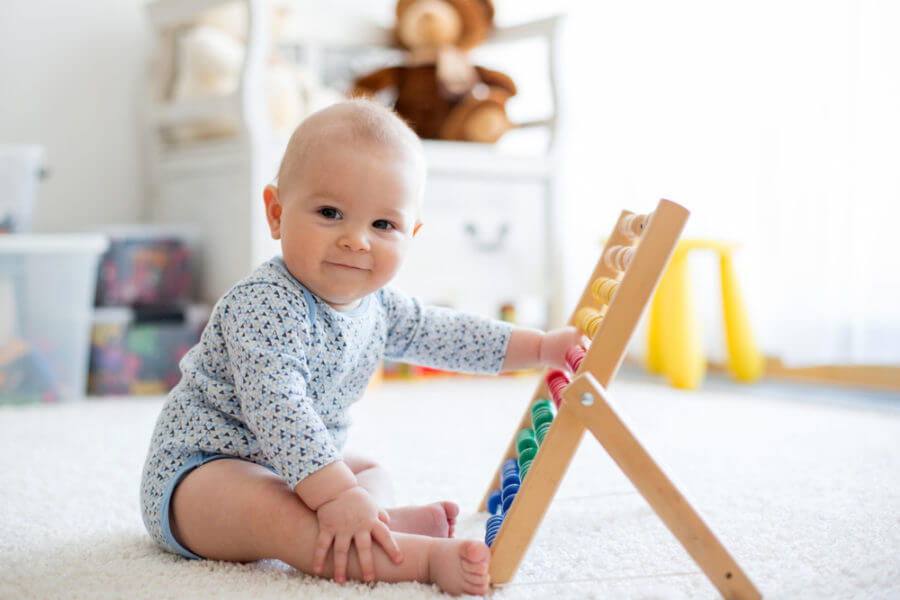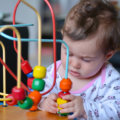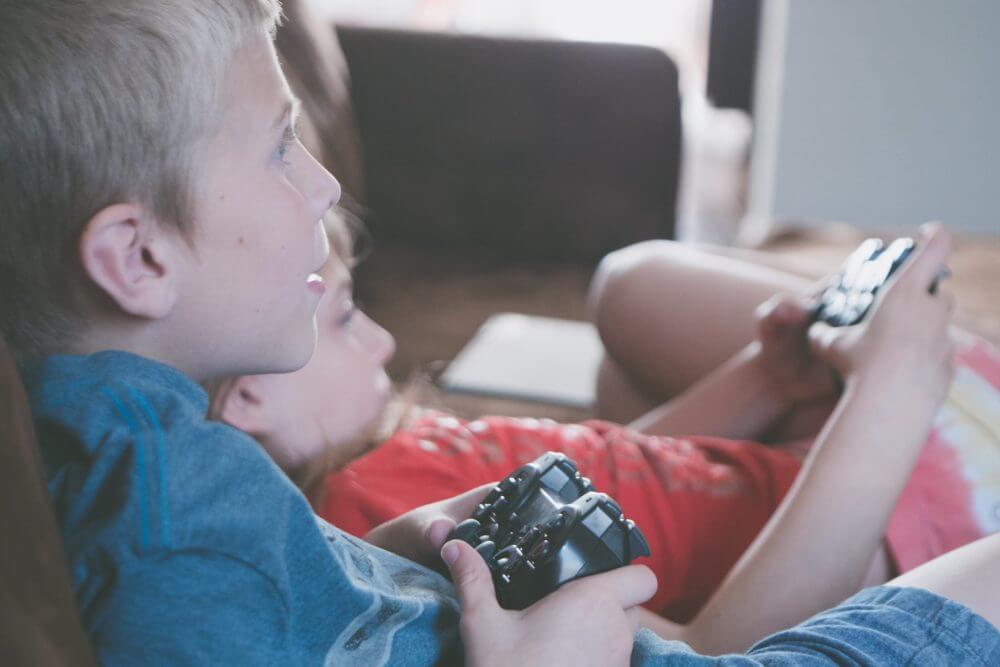Raising a baby is a highly important and difficult thing to do. Everyone wants their child to grow up to be the next Einstein or an innovator in the field of science and technology. Every parent wants the best for their child.
Contents
Many parents look for new ways to help their child learn and grow, and doing it by yourself can be trying and draining. This is why a lot of parents use technology, TV and videos to teach their children about the world around them.
However, there are a lot of debates about whether watching TV has negative effects on your baby’s brain development. We are here to discuss this issue and take a closer look at the effects of TV on your baby.The Effects of TV on Babies
It can be tempting to listen to YouTube videos or apps that promise to develop your child’s brain early and help them on their way to greatness. In addition, giving your child an app to play with or a TV show to get lost in can also act as your own personal babysitter for those busy days.
Although there are many TV shows and cable channels dedicated to your baby, most studies show that subjecting babies to a lot of screen exposure can limit their growth and development, and have lasting negative effects.
Many studies suggest that excessive screen viewing time before the age of 18 months old can have lasting effects on your child’s memory, development, speaking and reading skills.
Leaving a child to sit in front of a TV all day can also prevent them from sleeping easily and shorten their attention span.
There are many benefits to having a child watch TV, especially if it is for educational purposes. There are so many informational programs that can help a child learn about colors, counting numbers and discover the alphabet. However, this is best kept for later on in life.
Negative effects of TV on babies
The first 2 years of your child’s life is critical to their mental and physical development. During this period, their brains are learning new things every day, and retain information like a sponge.
In the first 2 years of their life, children begin learning how to speak and understand spoken language and body language. They also begin developing these skills for themselves so that they are able to express their needs and feelings.
By interacting physically with people, your baby will begin to understand certain notions and words and begin communicating with you. If they are sat infront of a TV, they are passive in conversations and interactions.
Watching characters and people on TV restricts your child’s ability to communicate with them and restricts their potential to connect emotionally with people.
For example, if your baby attempts to wave or smile at a TV character, the person will not reciprocate or smile back. This can be upsetting for your baby, and may affect their social confidence and psychological development.
Babies try to understand the world around them every second of the day. The best way for your baby to comprehend what everything is, feels like and means to them, is to help them explore and learn.
Having a baby sitting down watching TV for extended periods of time will restrict their time that they could have spent playing with you, learning, exploring and finding new things to interact with.
These are all things that may seem tiresome to you, but are vital to the development of your baby’s emotional, social, communicative and intellectual skills.
When a baby has time to explore, crawl and pick up objects or toys, they are trying to comprehend what everything is, and what we use it for. They experiment with cause and effect, and learn important skills.
For example, if your baby tries to pick something up and put it in its mouth, and you say no, do not do that, they are learning that it is not safe to eat or play with that specific object.
Leaving a baby to watch a screen passively does not help it learn or grow or develop their skills and intellect like they should be in the first crucial stages of their development.
Babies can become entranced in the noises and colors of the TV, and then without it can find it difficult to keep their attention span.
This is not so much of a problem in younger ages, but as they grow older and need to start developing language skills or go to school, they have missed out on a valuable learning experience.
Many children that have suffered from excessive TV and screen time can suffer from developmental delays, slow language acquisition, weakened concentraion, and can be dependent on screens for learning and interest.
This can make learning in a school environment difficult for them as they may have become visual learners instead of listening learners. This can then make it harder to understand numerical values, and unable to decipher letters for reading and writing skills.
How much screen time should I allow for my children?
Many medical professionals and academics state that children should limit their screen time to 1-2 hours a day.
However, many people argue that babies younger than 18 months should have no time in front of a screen at all.
How do I assist my baby’s development?
Try to avoid ‘educational’ videos or TV shows. The best way to help your child learn is to physically teach them things yourself. Your child will often try to please you and make you happy and will enjoy the small successes with you.
Try reading a book or taking part in a stimulating game with blocks and shapes to help them learn. Your baby will love you spending time with them and entertaining them. Sing songs, play peek-a-boo, recite rhymes and just interact with them.
Be as responsive to your baby as possible, react to their smile, actions, speech and communicate back. This will be far more beneficial to their mental development than passively watching a video or TV show.
As a parent of a five-year-old inquisitive boy, I have gained a lot of experience finding fun activities and toys to help him understand science and understanding our world in general. On this blog, you’ll find an extensive amount of tutorials, guides, and toys about Science, Technology, Engineering, and Math based on my personal experience to help your child develop critical STEM skills.






